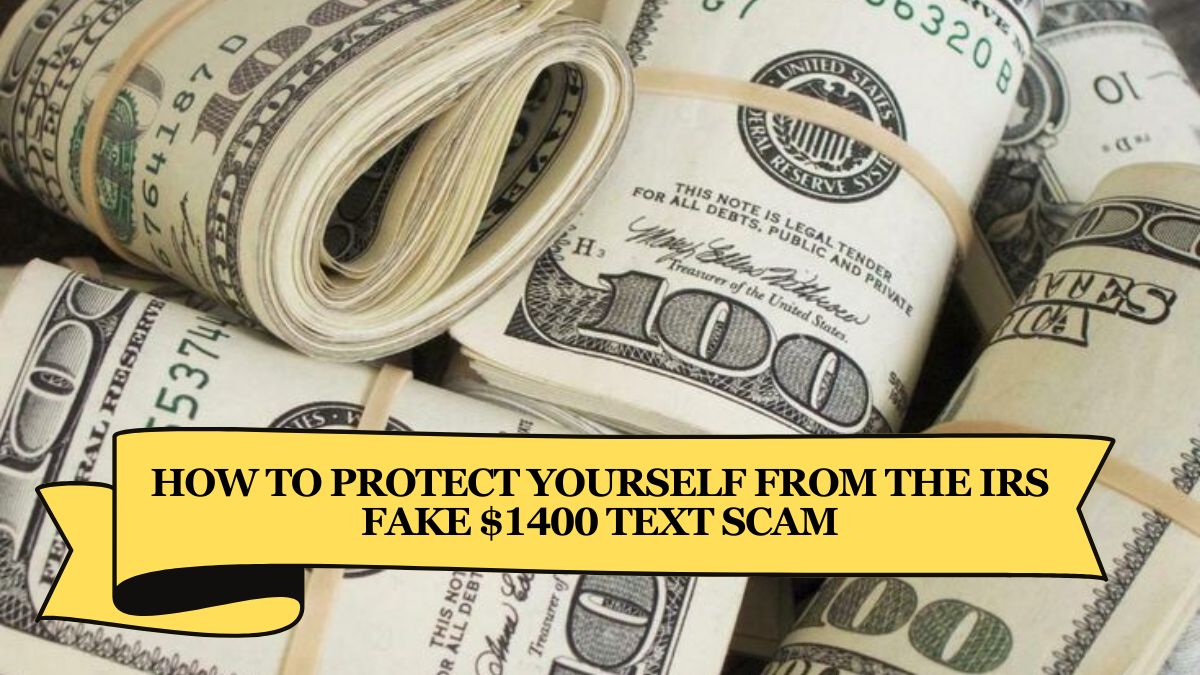Taxpayers in the United States are being warned about a new scam that is making its rounds. Fraudsters are pretending to be from the IRS and sending text messages saying people are eligible for a $1,400 stimulus check. These messages often look very real, but they are designed to trick people into giving away their personal information. This article explains how the scam works and provides tips to avoid falling for it.
What Is the Fake $1400 IRS Stimulus Check Scam?
How the Scam Works
The scam begins when you receive a text message claiming that you are eligible for a $1,400 stimulus check from the IRS. The message often includes a link that looks like an official IRS website. Once you click on the link, you may be directed to a fake site that asks you to enter personal details such as your name, Social Security number, and bank account information. This information is then stolen by the scammers, and your identity or money could be at risk.
How to Spot a Fake Text Message
A lot of people are getting tricked because these messages look very official. However, there are some clear signs to watch out for:
- Suspicious Links: The fake message may include a link that looks like it could take you to the IRS website, but it’s not actually the official site. The IRS never sends links in text messages.
- Urgency: The scam message might make you feel like you need to act quickly. Scammers often use phrases like “Act Now” or “You must respond immediately” to create a sense of urgency.
- Unsolicited Messages: The IRS will never contact you via text message, email, or social media. If you receive a message like this, it’s likely a scam.
Why This Scam Works
The scammers use fake IRS messages because many people are expecting or have received stimulus checks in the past. By pretending to offer a $1400 check, they catch people off guard and trick them into clicking on the link and giving away their information.
What the Real IRS Is Doing
The Actual Stimulus Payment Process
The IRS has said that if you’re eligible for a $1400 stimulus payment, it will not come through a text message. Instead, the IRS will deposit the money directly into your bank account or send a check in the mail. This is the only way that payments are being sent out.
For some taxpayers, the IRS is automatically sending $1400 payments to people who did not claim the Recovery Rebate Credit on their 2021 tax returns. This is for those who missed one of the COVID-19 stimulus payments or didn’t get the full amount. This payment will not require you to provide any personal information over text or email.
How the IRS Will Contact You
If the IRS needs to contact you, it will do so in writing, usually through the mail. They will never reach out to you through text messages, phone calls, or social media messages. It’s important to remember that the IRS never asks for sensitive information, such as your bank account details, over unsecured channels.
How to Protect Yourself
Don’t Click on Suspicious Links
The first rule of thumb is to avoid clicking on any links in unsolicited text messages. Even if the message looks legitimate, if you weren’t expecting it, it’s probably a scam. The IRS doesn’t use text messages to communicate with taxpayers, so if you get one, delete it immediately.
Report the Scam
If you get a suspicious text message, you should report it. Forward it to phishing@irs.gov and also report it to the Better Business Bureau Scam Tracker. This helps authorities track scams and prevent others from falling victim to them.
Protect Your Personal Information
Scammers are trying to steal your personal and financial details. Never share your Social Security number, bank account details, or passwords with anyone who contacts you unexpectedly. Be careful when giving out any personal information, especially online.
What to Do If You Think You’ve Fallen for the Scam
If you clicked on a suspicious link or provided personal information, you need to act quickly:
- Change Your Passwords: Update your passwords for all online accounts, especially banking accounts.
- Contact Your Bank: If you provided financial details, inform your bank immediately. They may be able to freeze any fraudulent activity.
- File a Report: Report the scam to the IRS and the Federal Trade Commission (FTC) to help prevent future fraud.
Scammers are getting better at tricking people with fake IRS text messages about stimulus checks. These messages may look real, but they are designed to steal your information. Remember that the IRS will never send you texts asking for personal details. Always be cautious when you receive unsolicited messages, especially those that seem urgent or ask for private information.
Must Visit: California State Online

